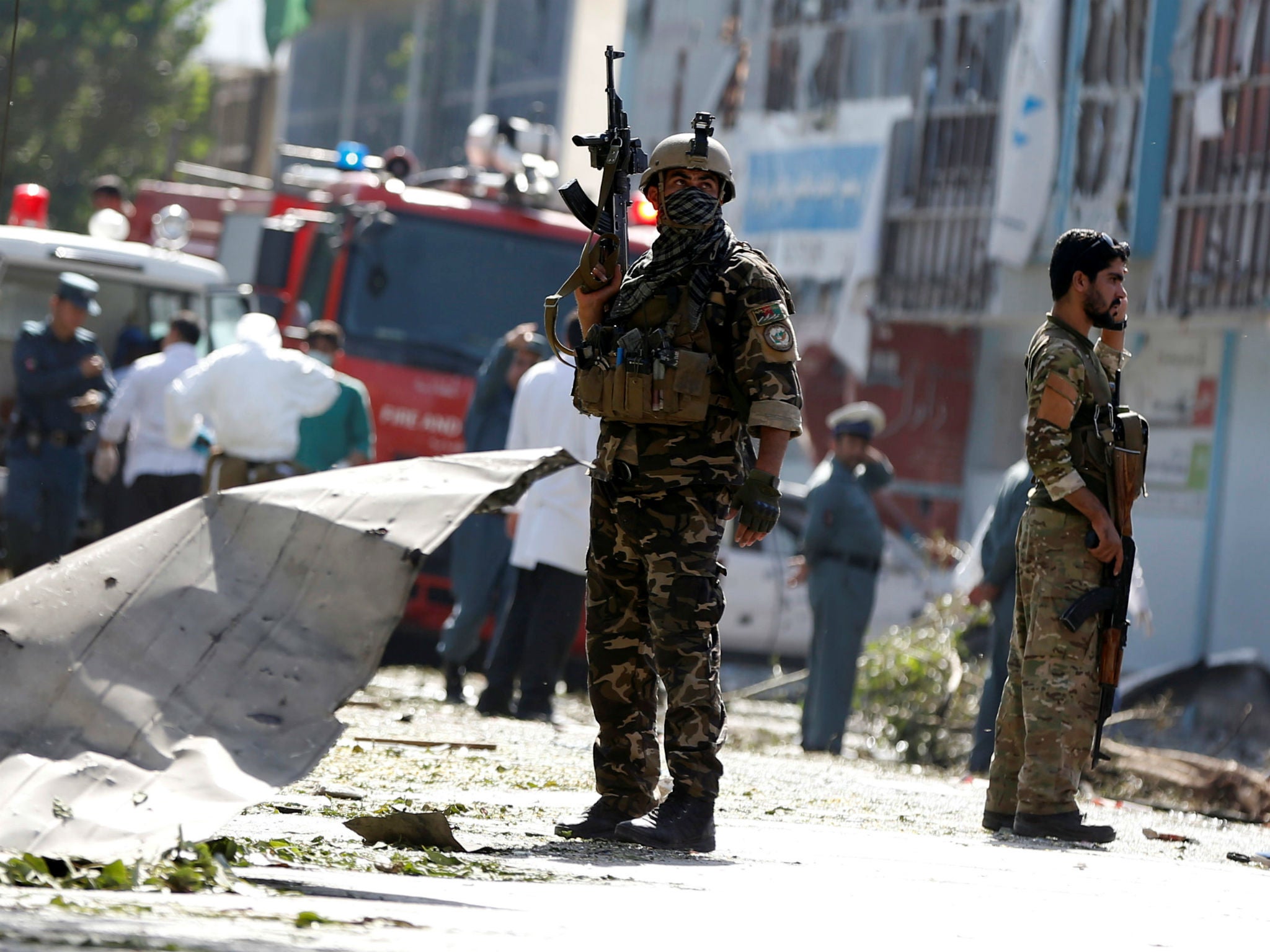Kabul attack: At least seven dead in suicide bomb blast at security checkpoint in Afghan capital
Attack apparently intended to hit crowds gathered to commemorate death of Shiite Hazara political leader

A suicide bomber has blown himself up in the Afghan capital Kabul, killing at least seven people, according to officials.
The attack was apparently intended to hit crowds gathered to commemorate the death of Abdul Ali Mazari, a political leader from the mainly Shiite Hazara minority.
One policeman and six civilians were killed, while another seven were wounded when the bomber was stopped at a security checkpoint, a deputy interior spokesperson said.
Nasrat Rahimi said the bomber appeared to have intended to attack crowds gathered to remember Mazari, a Hazara political leader killed by the Taliban in 1995.
A string of attacks on Shiite mosques and Hazara gatherings has been claimed by an affiliate of Isis, although many Afghan and Western security officials say they doubt the group works alone.
In December, dozens of people were killed in a suicide attack on a Shiite cultural centre claimed by Isis and two months earlier two separate mosque attacks killed at least 72 people.
The attack came less than two weeks after President Ashraf Ghani called on the Taliban to join peace talks to end more than 16 years of the latest phase of Afghan war.
Additional reporting by Reuters
Join our commenting forum
Join thought-provoking conversations, follow other Independent readers and see their replies
Comments
Bookmark popover
Removed from bookmarks